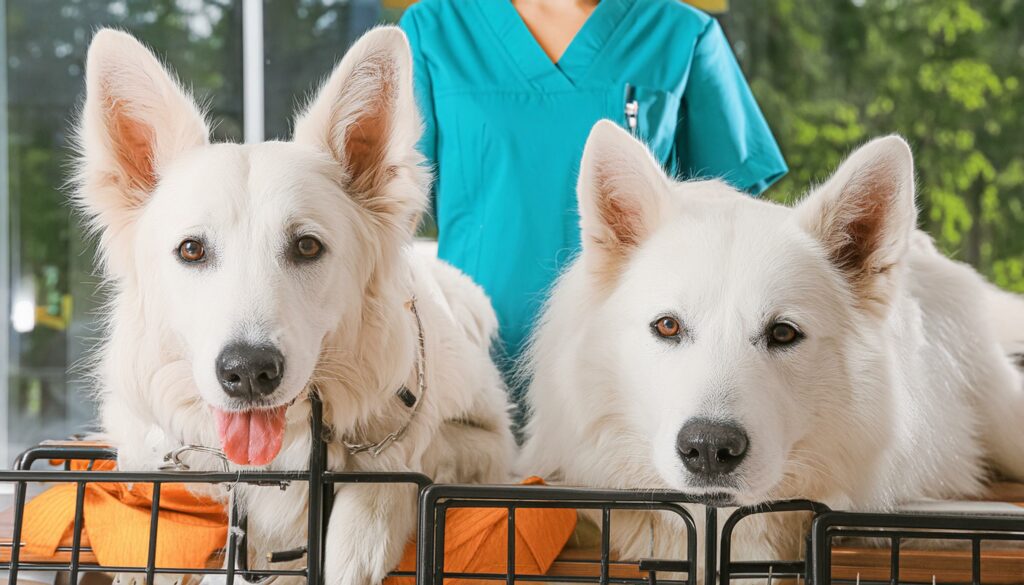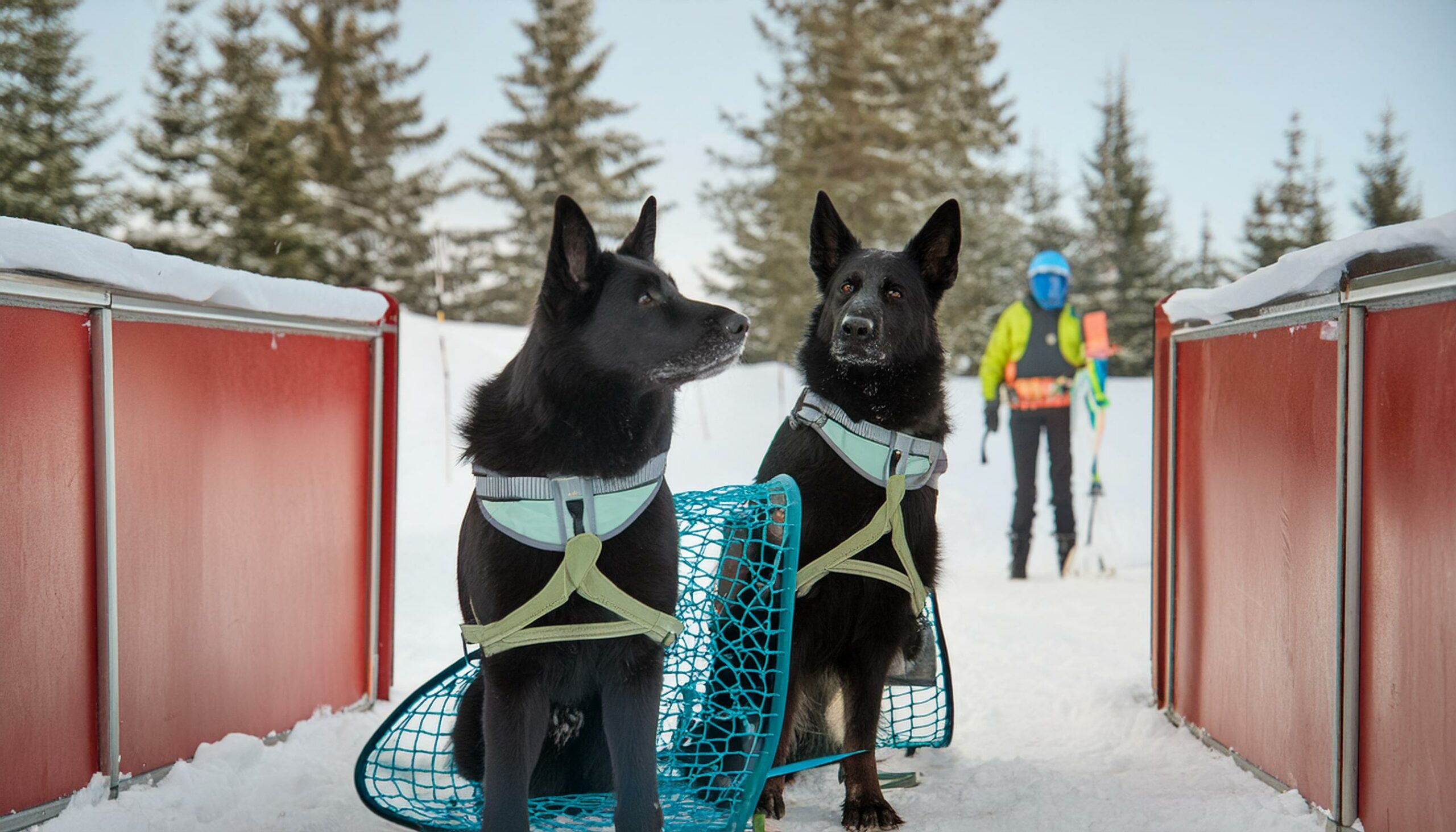German Shepherds, with their striking appearance and remarkable skills, are among the most beloved and versatile dog breeds globally. Originating in Germany in the late 19th century, these dogs were initially bred for herding purposes. Over time, they have evolved to become prized companions, excelling in various roles due to their intelligence, loyalty, and athleticism.
Intelligence and Trainability
Cognitive Abilities
German Shepherds are renowned for their exceptional intelligence. They consistently rank among the top breeds in terms of problem-solving abilities and trainability. Their cognitive abilities allow them to learn complex tasks quickly, making them ideal candidates for various working roles.
Ease of Training
Their intelligence, coupled with a strong desire to please their owners, makes German Shepherds relatively easy to train. They thrive on mental stimulation and respond well to positive reinforcement techniques. Whether it’s obedience training, agility exercises, or specialized tasks, German Shepherds excel with the right guidance.
Loyalty and Protective Instincts
Devotion to Owners
One of the most cherished traits of German Shepherds is their unwavering loyalty to their owners. They form deep bonds with their families and are known to be fiercely protective of them. This loyalty translates into a strong desire to keep their loved ones safe from harm.
Guarding and Protective Instincts
German Shepherds have a natural instinct to protect their territory and loved ones. They are vigilant and quick to react to potential threats, making them excellent guard dogs. Whether it’s patrolling the perimeter of a property or keeping watch over children, German Shepherds take their protective duties seriously.
Agility and Physical Abilities

Athleticism and Strength
German Shepherds are renowned for their athleticism and strength. They have a muscular build and impressive endurance, allowing them to excel in various physical activities. Whether it’s running, jumping, or navigating obstacle courses, these dogs possess the agility and power to tackle challenging tasks with ease.
Versatility in Tasks
Their combination of athleticism and intelligence makes German Shepherds highly versatile. They are capable of performing a wide range of tasks, from herding livestock to participating in competitive sports like agility trials and obedience competitions. Their adaptability makes them valuable assets in diverse settings.
Work and Service Roles
Police and Military Work
German Shepherds have a long history of serving in law enforcement and military roles. Their keen sense of smell, intelligence, and obedience make them invaluable assets in tasks such as drug detection, search and rescue missions, and apprehension of suspects. Their presence alone serves as a deterrent to potential criminals.
Search and Rescue Operations
In addition to their roles in law enforcement, German Shepherds play a crucial role in search and rescue operations. Their acute sense of smell and agility enable them to locate missing persons in various terrains and conditions. Whether it’s finding survivors in collapsed buildings or tracking lost hikers in the wilderness, these dogs are indispensable in life-saving missions.
Emotional Intelligence and Bonding
Sensitivity to Emotions
German Shepherds are highly attuned to the emotions of their owners. They have an innate ability to sense when their humans are feeling distressed or anxious. In such situations, they offer comfort and companionship, providing a source of solace during difficult times.
Strong Bonds with Owners
Their deep loyalty and affectionate nature foster strong bonds with their owners. Whether it’s through cuddles, playtime, or simply being by their side, German Shepherds thrive on the companionship of their human family members. These bonds are built on trust, love, and mutual respect, making them cherished members of the household.
Obedience and Discipline
Response to Commands
German Shepherds are known for their responsiveness to commands. With consistent training and positive reinforcement, they can master a wide range of commands and tasks. From basic obedience commands like sit and stay to more advanced tasks like retrieving objects or performing tricks, these dogs are eager to please and quick to learn.
Importance of Consistency
Consistency is key when it comes to training German Shepherds. Clear communication, firm but fair leadership, and positive reinforcement are essential for shaping their behavior. Establishing rules and boundaries early on helps prevent undesirable behaviors and fosters a harmonious relationship between the dog and its owner.
Adaptability and Versatility
Thriving in Various Environments
German Shepherds are adaptable dogs that can thrive in various environments. Whether it’s a bustling city apartment or a sprawling rural estate, these dogs can adjust to different living conditions with ease. Their versatility makes them suitable companions for individuals and families from all walks of life.
Adjusting to Different Roles
One of the remarkable qualities of German Shepherds is their ability to adapt to different roles. While they excel in traditional working roles like herding and guarding, they are also well-suited for modern tasks such as therapy work, assistance work for people with disabilities, and even acting in movies and television shows. Their versatility and willingness to learn new skills make them valuable assets in a wide range of settings.
Health and Longevity

Common Health Issues
Like all breeds, German Shepherds may be prone to certain health issues. Common concerns include hip dysplasia, degenerative myelopathy, bloat, and various skin conditions. Regular veterinary check-ups, a balanced diet, and preventive measures such as vaccinations and parasite control can help minimize the risk of health problems.
Lifespan and Care
With proper care and attention, German Shepherds can live long and healthy lives. Their average lifespan ranges from 9 to 13 years, though individual longevity can vary based on factors such as genetics, diet, exercise, and overall health. Providing a nutritious diet, regular exercise, mental stimulation, and plenty of love and affection are essential for ensuring the well-being of these magnificent dogs.
Exercise and Activity Needs
Daily Exercise Requirements
German Shepherds are high-energy dogs that require plenty of exercise to stay healthy and happy. Daily walks, runs, and play sessions are essential for burning off excess energy and preventing boredom. Engaging in activities like fetch, agility training, or hiking provides both physical and mental stimulation, keeping these dogs mentally sharp and physically fit.
Mental Stimulation
In addition to physical exercise, German Shepherds benefit from mental stimulation to prevent boredom and behavioral issues. Puzzle toys, interactive games, and obedience training are excellent ways to keep their minds engaged and challenged. Teaching them new commands or tricks not only reinforces their training but also strengthens the bond between the dog and its owner.
Socialization and Interaction
Interaction with Other Pets
Early socialization is crucial for German Shepherds to learn how to interact appropriately with other pets and animals. Exposing them to different people, animals, and environments from a young age helps prevent fearfulness and aggression towards unfamiliar individuals or animals. Supervised introductions and positive experiences with other pets promote harmonious relationships within the household.
Behavior Around Strangers
While German Shepherds are naturally protective of their families, they can be trained to behave calmly and politely around strangers. Early socialization, positive reinforcement training, and exposure to various social situations help build confidence and teach appropriate behavior. With proper training and guidance, German Shepherds can greet strangers politely without displaying fear or aggression.
Herding Instincts
Background as Herding Dogs
German Shepherds have a rich history as herding dogs, originally bred for their intelligence, agility, and herding instincts. They were prized for their ability to manage and control livestock, whether it was sheep, cattle, or other farm animals. Their keen intelligence and strong work ethic made them indispensable helpers on farms and ranches.
Manifestation in Modern Settings
While many German Shepherds no longer work as herding dogs, their herding instincts often manifest in various ways in modern settings. They may exhibit behaviors such as chasing or nipping at moving objects, including children or other pets. Providing outlets for their herding instincts, such as interactive toys or games that mimic herding behaviors, can help satisfy their natural drive and prevent undesirable behaviors.
Communication Skills
Vocalizations and Body Language
German Shepherds are excellent communicators, using a combination of vocalizations, body language, and facial expressions to convey their thoughts and emotions. They may bark, whine, growl, or use other vocalizations to express themselves, while their posture, tail position, and facial expressions provide additional clues to their mood or intentions.
Understanding Human Cues
Through years of selective breeding and close interaction with humans, German Shepherds have developed a keen understanding of human cues and commands. They are quick to interpret gestures, facial expressions, and verbal cues from their owners, making them highly responsive and obedient companions. Their ability to understand and communicate with humans makes them valuable partners in various working roles and household settings.
Problem-Solving Abilities
Analyzing Situations
German Shepherds possess keen problem-solving abilities, allowing them to analyze situations and make decisions based on their instincts and training. Whether it’s figuring out how to open a door, retrieve a toy from under furniture, or navigate through an obstacle course, these dogs approach challenges with curiosity and determination.
Finding Solutions
When faced with obstacles or challenges, German Shepherds demonstrate resourcefulness and persistence in finding solutions. They may experiment with different approaches or rely on their training to overcome hurdles. Their problem-solving abilities, combined with their intelligence and adaptability, make them invaluable partners in various endeavors.
Conclusion
German Shepherds are truly remarkable dogs with a wide range of skills and abilities that make them prized companions in numerous roles. From their intelligence and loyalty to their agility and protective instincts, German Shepherds embody the ideal traits of a versatile and dependable canine companion. Whether serving as working dogs in law enforcement or search and rescue operations, or simply providing love and companionship to their families, these dogs leave an indelible mark on the hearts of all who have the privilege of knowing them.
FAQs About German Shepherds
Are German Shepherds good family pets?
German Shepherds can make excellent family pets with proper training, socialization, and supervision, especially in households with active lifestyles and experience with large breeds.
Do German Shepherds require a lot of exercise?
Yes, German Shepherds are high-energy dogs that require regular exercise to maintain their physical and mental well-being. Daily walks, playtime, and mental stimulation are essential for their health and happiness.
Are German Shepherds prone to health problems?
Yes, German Shepherds are high-energy dogs that require regular exercise to maintain their physical and mental well-being. Daily walks, playtime, and mental stimulation are essential for their health and happiness.
Do German Shepherds get along with other pets?
With proper socialization and training, German Shepherds can coexist peacefully with other pets in the household. Early introductions and positive experiences are key to fostering good relationships.
What kind of training do German Shepherds require?
German Shepherds benefit from early and consistent obedience training using positive reinforcement techniques. They respond well to clear commands and thrive on mental stimulation and structured activities.
